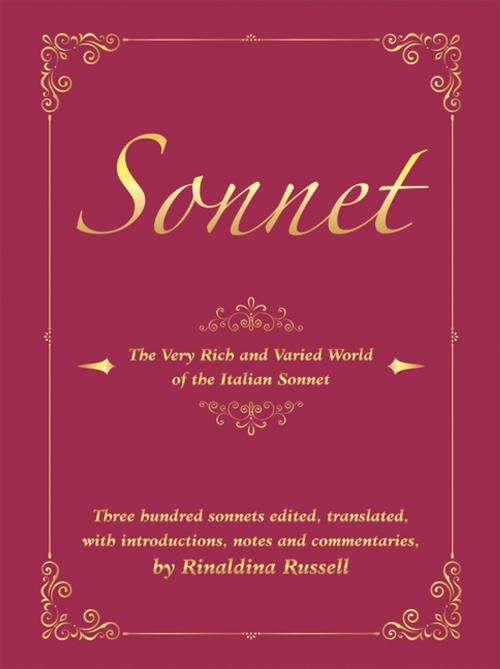Sonnet
The Very Rich and Varied World of the Italian Sonnet
Fiction & Literature, Literary Theory & Criticism, Poetry History & Criticism| Author: | Rinaldina Russell | ISBN: | 9781480845800 |
| Publisher: | Archway Publishing | Publication: | April 19, 2017 |
| Imprint: | Archway Publishing | Language: | English |
| Author: | Rinaldina Russell |
| ISBN: | 9781480845800 |
| Publisher: | Archway Publishing |
| Publication: | April 19, 2017 |
| Imprint: | Archway Publishing |
| Language: | English |
By their very nature, sonnets allow quick glimpses into the lives of individuals and their surroundings.
They can reveal what people loved, hated, idealized, and found ridiculous or grotesqueand Italian sonnets in particular exhibit a remarkably wide range of content and form.
Rinaldina Russell, a scholar of Italian medieval and Renaissance literature and of women studies, leads you on a glorious exploration of medieval and Renaissance verse in Sonnet. Focusing strictly on Italy, she explains that sonnet writing was not the purview of a selected group of people.
From the sonnets appearance in the first half of the thirteenth century through the Renaissance and on to the baroque age, writing sonnets was an activity people at all levels of society and of all intellectual and literary backgrounds practiced.
She translates some of Italys most important, interesting, and underappreciated sonnets, conveying the meaning and structure of thought as faithfully as possible. Themes vary from political and military arguments to expressions of love and sexual needs, from atheistic and cynical views on mans nature and destiny, to a celebration of life and the divine.
She also provides commentary to relate what translations do not convey, including the rhythmic and verbal effects of the Italian text and its topical allusions.
By their very nature, sonnets allow quick glimpses into the lives of individuals and their surroundings.
They can reveal what people loved, hated, idealized, and found ridiculous or grotesqueand Italian sonnets in particular exhibit a remarkably wide range of content and form.
Rinaldina Russell, a scholar of Italian medieval and Renaissance literature and of women studies, leads you on a glorious exploration of medieval and Renaissance verse in Sonnet. Focusing strictly on Italy, she explains that sonnet writing was not the purview of a selected group of people.
From the sonnets appearance in the first half of the thirteenth century through the Renaissance and on to the baroque age, writing sonnets was an activity people at all levels of society and of all intellectual and literary backgrounds practiced.
She translates some of Italys most important, interesting, and underappreciated sonnets, conveying the meaning and structure of thought as faithfully as possible. Themes vary from political and military arguments to expressions of love and sexual needs, from atheistic and cynical views on mans nature and destiny, to a celebration of life and the divine.
She also provides commentary to relate what translations do not convey, including the rhythmic and verbal effects of the Italian text and its topical allusions.















